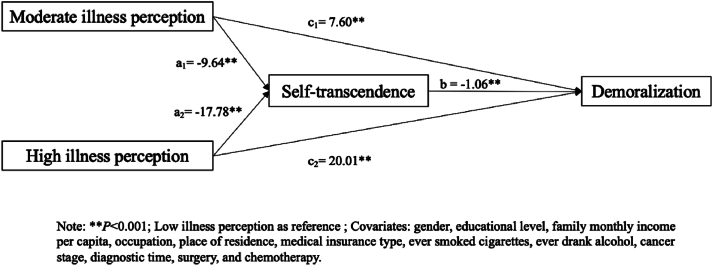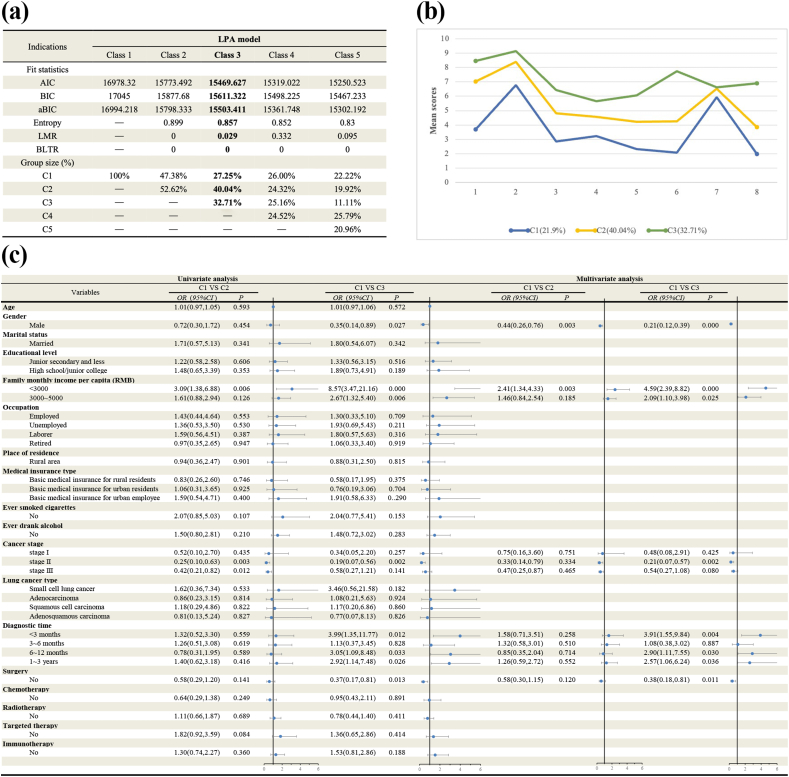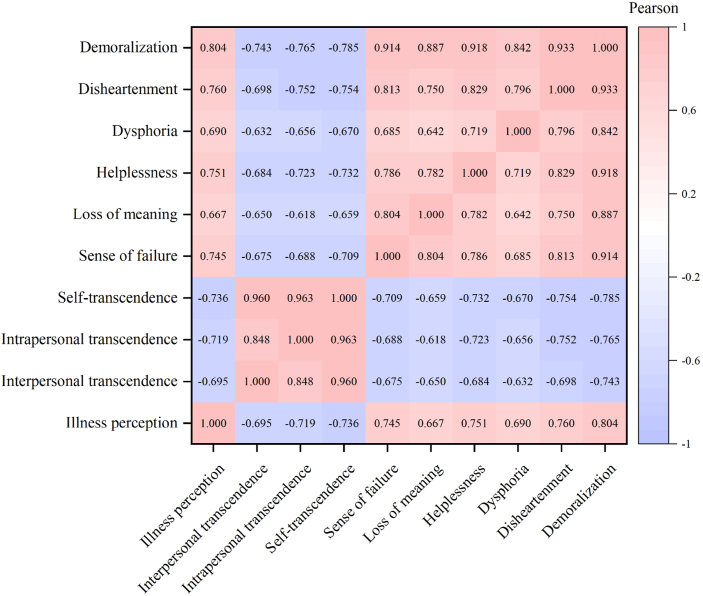Exploring the relationship between illness perception, self-transcendence, and demoralization in patients with lung cancer: A latent profile and mediation analysis
IF 2.8
3区 医学
Q1 NURSING
引用次数: 0
Abstract
Objective
This study examined the heterogeneity of illness perceptions in patients with lung cancer and evaluated the mediating role of self-transcendence in the relation between illness perception and demoralization.
Methods
A convenience sample of 477 patients with lung cancer was selected from three tertiary hospitals in Wuhan, China, between January and June 2024. Participants completed the Brief Illness Perception Questionnaire, Self-Transcendence Scale, and Demoralization Scale. Data were analyzed using Mplus 8.3 and SPSS 25.0.
Results
Three latent illness perception profiles were identified among patients with lung cancer: low (27.25%), moderate (40.04%), and high (32.71%). Mediation analyses revealed a partial mediation effect in the relation between illness perception and demoralization in the low versus moderate (SE = 1.56, 95% CI = 14.71, 20.86) and high versus low illness perception groups (SE = 1.71, 95% CI = 35.44, 42.71).
Conclusions
Patients with lung cancer exhibited heterogeneous illness perceptions, and self-transcendence partially mediated the relation between illness perception and demoralization. Promoting self-transcendence may help mitigate the negative impact of illness perceptions on demoralization. Clinical interventions aimed at reducing negative illness perceptions and enhancing self-transcendence should be prioritized in the care of patients with lung cancer.



探讨肺癌患者疾病感知、自我超越和士气低落之间的关系:潜在特征和中介分析。
目的:探讨肺癌患者疾病知觉的异质性,并探讨自我超越在疾病知觉与士气低落之间的中介作用。方法:选取武汉市三所三级医院于2024年1 - 6月收治的477例肺癌患者作为方便样本。受试者完成疾病感知问卷、自我超越量表和情绪低落量表。数据分析采用Mplus 8.3和SPSS 25.0软件。结果:肺癌患者存在低(27.25%)、中(40.04%)、高(32.71%)3种潜在疾病感知特征。中介分析显示,疾病知觉与士气低落之间的关系在低与中度组(SE = 1.56, 95% CI = 14.71, 20.86)和高与低疾病知觉组(SE = 1.71, 95% CI = 35.44, 42.71)存在部分中介作用。结论:肺癌患者疾病感知呈现异质性,自我超越在疾病感知与情绪低落的关系中起部分中介作用。促进自我超越可能有助于减轻疾病认知对士气低落的负面影响。临床干预旨在减少消极的疾病认知和增强自我超越应优先考虑的肺癌患者的护理。
本文章由计算机程序翻译,如有差异,请以英文原文为准。
求助全文
约1分钟内获得全文
求助全文
来源期刊

Asia-Pacific Journal of Oncology Nursing
Multiple-
CiteScore
2.80
自引率
11.10%
发文量
136
审稿时长
31 days
 求助内容:
求助内容: 应助结果提醒方式:
应助结果提醒方式:


